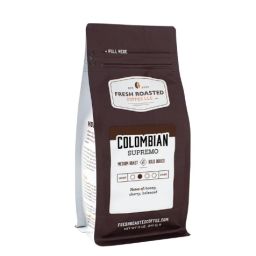
Turkish coffee isn’t just a delightful beverage; it’s a brew steeped in health benefits and unique traditions. Known for its strong flavor and fine grounds, Turkish coffee stands out not just for its preparation method but also for its potential health perks. From boosting metabolism to enriching your body with antioxidants, Turkish coffee offers more than just a caffeine kick.
Key Takeaways
- Health Benefits: Rich in antioxidants, Turkish coffee can help reduce the risk of chronic diseases and improve heart health.
- Cultural Importance: More than a drink, it’s a symbol of hospitality and tradition in Turkish culture, often accompanied by the unique practice of reading fortunes from coffee grounds.
- Brewing Method: Distinctive for its fine grounds and preparation in a cezve, Turkish coffee offers a unique taste and experience.
History and Cultural Significance
The origins of Turkish coffee trace back to the Ottoman Empire, becoming an integral part of Turkish culture over centuries. It’s not merely a beverage but a ritual, symbolizing friendship and hospitality. Turkish coffee’s significance stretches from daily social gatherings to engagement ceremonies, where the way it’s prepared and served can signify intentions and character.
Brewing Method: A Craft of Its Own
Turkish coffee’s brewing process is as unique as its taste. Prepared in a special pot called a cezve, the coffee is finely ground to a powder-like consistency and then slowly simmered with water and sugar, if desired, to create a strong, frothy top with a thick body. This method, which is distinct from other brewing techniques, results in a coffee that is rich, flavorful, and capable of telling fortunes in its grounds.
General Health Benefits
Turkish coffee isn’t just a morning ritual or a post-meal delight; it’s a cup full of health benefits waiting to be explored. Research and traditions suggest that regularly enjoying this aromatic brew can have positive effects on your health, ranging from chronic disease prevention to metabolism boosts.
Alzheimer’s, Type 2 Diabetes, and Cardiovascular Health: Sipping on Turkish coffee can be more than just a pleasurable experience. The antioxidants found in coffee have been linked to a reduced risk of Alzheimer’s disease and type 2 diabetes. Additionally, its potential to improve heart health is a significant benefit, making every cup a step towards a healthier heart.
Metabolic and Weight Loss Benefits: The caffeine content in Turkish coffee is a natural metabolism booster. This means that enjoying a cup could help your body burn calories a bit faster, contributing to weight loss efforts. It’s the perfect example of how a traditional beverage can complement modern health goals.
Nutritional Content and Considerations
When it comes to the nutritional profile of Turkish coffee, it’s as rich and complex as its flavor. Understanding what goes into every sip can help you appreciate this drink even more while being mindful of your health.
Caffeine Content and Calories: A typical serving of Turkish coffee contains moderate amounts of caffeine, offering a gentle lift without the jitters associated with stronger coffee. Calorie-wise, it’s quite low, especially when enjoyed without added sugar or milk. However, adding sweeteners or dairy can alter its nutritional value, increasing its calorie content.
Impact of Additives: It’s worth noting that the health benefits of Turkish coffee can vary based on what you add to it. Sugar, milk, or cream can turn a low-calorie drink into a high-calorie indulgence, so moderation is key. For those watching their intake, enjoying Turkish coffee in its traditional form—black and unsweetened—provides the most health benefits.
Commonly Used Spices
Turkish coffee isn’t just famous for its unique preparation and rich history; it’s also renowned for the variety of spices that can be added to tailor its flavor to personal preference. These spices not only enhance the taste but come with their own set of health benefits.
Cinnamon, Cloves, Nutmeg, Vanilla, and Ginger: These spices are a few favorites that are commonly stirred into Turkish coffee. Cinnamon is known for its ability to regulate blood sugar levels, while cloves can boost immunity. Nutmeg adds a sweet warmth and is associated with digestive health. Vanilla, with its comforting aroma, can elevate mood, and ginger, known for its anti-inflammatory properties, adds a spicy kick that can soothe an upset stomach.
Preparation Tips for Enhanced Flavor
When it comes to brewing Turkish coffee with these spices, the key is balance and personal taste. Here are some practical tips to get the most out of your spiced coffee experience without overshadowing the coffee’s natural richness.
Integrating Spices: Start with a pinch of your chosen spice or spices to the coffee grounds before brewing. This allows the flavors to infuse throughout the brewing process, creating a more harmonious flavor profile. For a stronger taste, adjust the amount of spice gradually according to your preference, but remember, a little goes a long way, especially with potent spices like cloves and nutmeg.
Experiment and Enjoy: Don’t be afraid to experiment with combinations or amounts of spices to find what works best for you. Each spice brings its own unique flavor and health benefits, making Turkish coffee not just a beverage but an experience that’s both enriching and enjoyable.
FAQs
When is the best time to drink Turkish coffee? Turkish coffee can be enjoyed any time of the day, but it’s traditionally savored in the morning or after meals. Its rich flavor and caffeine kick make it a perfect morning beverage, while its digestif properties are appreciated post-meal.
What is the recommended daily consumption? Moderation is key. While Turkish people may enjoy several cups a day, health organizations suggest limiting coffee intake to 3-4 cups per day to avoid potential side effects from too much caffeine, such as hypertension or cardiovascular issues.
Can Turkish coffee affect hair health? Yes, positively so. The caffeine in Turkish coffee can stimulate hair follicles and improve hair texture by enhancing blood flow to the scalp. This makes it an interesting addition to your hair care routine, not just your diet.
Does Turkish coffee help with weight loss? Turkish coffee can aid in weight management thanks to its caffeine content, which may increase metabolism and fat burning. However, adding sugar or milk can increase calorie intake, so enjoy it moderately and mind the additives for the best health benefits.
Final Thoughts
Turkish coffee is more than just a beverage; it’s a cultural icon, brimming with history and tradition. Its unique brewing method, rich flavors, and potential health benefits, from boosting metabolism to improving heart health, make it a cherished drink worldwide. However, enjoying Turkish coffee to its fullest extends beyond taste—it’s about embracing its cultural significance and appreciating the craftsmanship behind every cup.
Like with all good things, moderation is key to enjoying Turkish coffee’s benefits without experiencing the downsides of overconsumption.









